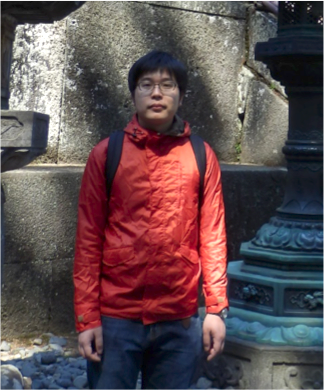
Division:Division of Socio-Cultural Dynamics
Position:Research fellow
Area:Area Studies (Southeast Asia), Social and Political History, Historical Anthropology
E-Mail:shimojo [at] cseas.kyoto-u.ac.jp
WEB:
Research Interests:
- Survival strategies in political disorder
A History of the River Basin and Seashore in Mainland Southeast Asia since the 20th Century
Research Overview:
- I am working on examining the struggle and negotiation over governance and subsistence that arose between the local people and political forces in the Mekong Delta of Southern Vietnam, under conditions of war and socialism in the late 20th century.
After the French colonial rule came to an end in the middle of the 20th Century, Vietnamese nation states attempted to mobilize resources and manpower in the Mekong Delta, which is one of the world’s leading rice-producing area. I explored how people coped with the national policies and how people’s survival strategies, such as draft evasion, black-market trading, and escaping, influenced the governance. To acquire the necessary data, I have conducted fieldwork in a local community, Soc Trang province located in the coastal Mekong Delta. In this community, historically ethnic Khmer, Chinese, and Vietnamese have lived together. I collected oral histories in order to reconstruct histories in the local community. In Soc Trang, which was a political frontier of several states until it was colonized by French, there are not only ethnic Vietnamese, but also ethnic Khmer who has been connected with Cambodia through the language and Theravada Buddhism, and ethnic Chinese who has made rice-export network. Because some of them have illegally circulated across the border between Vietnam and Cambodia, struggle on resource and manpower has risen between them and state which is suspicious of their national loyalty.
According to the oral history I have collected, local people engaged in illegal activities such as black-market trading and illegal migrant work, and escaped from Vietnam by using illegal routes extending from the Vietnamese Mekong Delta to Cambodia and Thailand in 20th Century. These routes were probably created along the Mekong river basin and the Gulf of Thailand during the period of war and socialism. Why did people engaging in illegal activities gather along the Mekong River basin and the Gulf of Thailand during the period of political disorder? Why did the river basin and seashore become refuges from state control? How and where were illegal routes created? What kinds of human relations were the created routes based on? What are today’s social conditions on the routes? How did the states manage and use the routes? I will attempt to answer these questions by focusing on Mekong River basin and the Gulf of Siam in Vietnam, Cambodia, and Thailand.
Research Publications and Academic Articles:
-
English
- 1) Shimojo, Hisashi. 2016. “Local Politics in National Border-Crossing between Southern Vietnam and Cambodia: Mobility in the Mekong Delta after the Cold War,” In 2016 Annual Conference on Southeast Asian Studies in Taiwan (ACSEAST), “The Politics of Transformation in Southeast Asia: Towards A People-Centered Agenda,” National Chengchi University, Taiwan. (Unpublished paper, Best Paper Award, http://www-archive.cseas.kyoto-u.ac.jp/www/2016/2016/10/20161003/ )
- 2) Shimojo, Hisashi. 2016. “The Concept of Lai (Mixed Blood) in Mekong Delta: A Reconsideration of the Ethnic Categories in Vietnam.” In Giang day, Nghien cuu Viet Nam hoc va Tieng Viet: Nhung Van de Ly thuyet va Thuc tien[Vietnamese Studies: The Issues of Methodology and Practicality](Vo Van Sen, ed). 626-634, Ho Chi Minh City: Nha Xuat ban Dai hoc Quoc gia TP.HCM [Vietnam National University–Ho Chi Minh City Press].
-
Japanese
- 1) Shimojo, Hisashi. 2016. Senso to Nanmin: Mekon Deruta Taminzoku Syakai no Oraru Hisutori [War and refugee: Oral Histories in A Multi-Ethnic Society of the Mekong Delta]. Tokyo: Fukyosha.
- 2) Shimojo, Hisashi. 2015. “Datsusyokuminchika Katei no Mekon Deruta niokeru Kumeerujin no Gengo Bukkyo Kizoku [Language, Buddhism, and Belonging during Decolonization: The Khmers of the Mekong Delta].” Ajia Afurika Chiiki Kenkyu [Asian and African Studies]15(1): 20-48. (Refereed)
- 3) Shimojo, Hisashi. 2015. Touchi to Seizon no Syakaishi: Betonamu Nanbu Mekon Deruta no Sensou to Syakaisyugi [A Social History of Governance and Subsistence: War and Socialism in the Mekong Delta of Southern Vietnam]. PhD dissertation, Kyoto University. (Refereed)
- 4) Shimojo, Hisashi. 2014. “Mekon Deruta niokeru Shihai womeguru Semegiai: Chiikisyakai no Hitobito no Rokaru Chitsuzyo to Kaihi no Ba (1976-1988 Nen) [The Struggle for Reign in the Mekong Delta: The Local Order and “Refuge” of People in Local Community (1976-1988)].” Tonan Ajia Kenkyu [Japanese Journal of Southeast Asian Studies]51(2): 227-266. (Refereed)
- 5) Shimojo, Hisashi. 2011. “Betonamu Saigon Seiken no Chubu Kougen Touchi: Senju Sanchimin no Tochisyoyuuken nitaisuru Seisaku wo Chushin ni[The Governance of Central Highlands by Saigon Government in Vietnam: the Policies toward Land ownership of the Highlanders].” Ajia Keizai [Asian Economies] 52(5): 2-31. (Refereed)
- 6) Shimojo, Hisashi. 2010. “Betonam Saigon Seiken no Sanchimin Touchi: Sanchimin Boudou Igo no Chubu Kougen niokeru Tochi Seisaku wo Chushin ni [The Transformation of Governance of the Highlanders by Saigon Government in Vietnam: The Land Policies in Central Highlands after the Highlanders Uprising].” In Mainoriti no Syosou: Nichijo niokeru Katto ya Kousyou heno Manazashi kara [Minorities in Asia and Africa: From Perspective on Conflicts and Negotiations in Everyday Life] (Hisashi Shimjo, Azusa Shuto, Mio Horie, Kyoko Sakuma eds). 1-13, Kyoto: Syokoudou Syoten.
- 7) Shimojo, Hisashi. 2009. Saigon Seiken niyoru Ryouiki Kokka Keisei: Betonamu Chubu Kougen niokeru Sanchimin to Tochi Shihai [The Territorial State Formation by Saigon Government: Highlanders and Land Consolidation]. Master’s thesis, Kyoto University. (Refereed)
